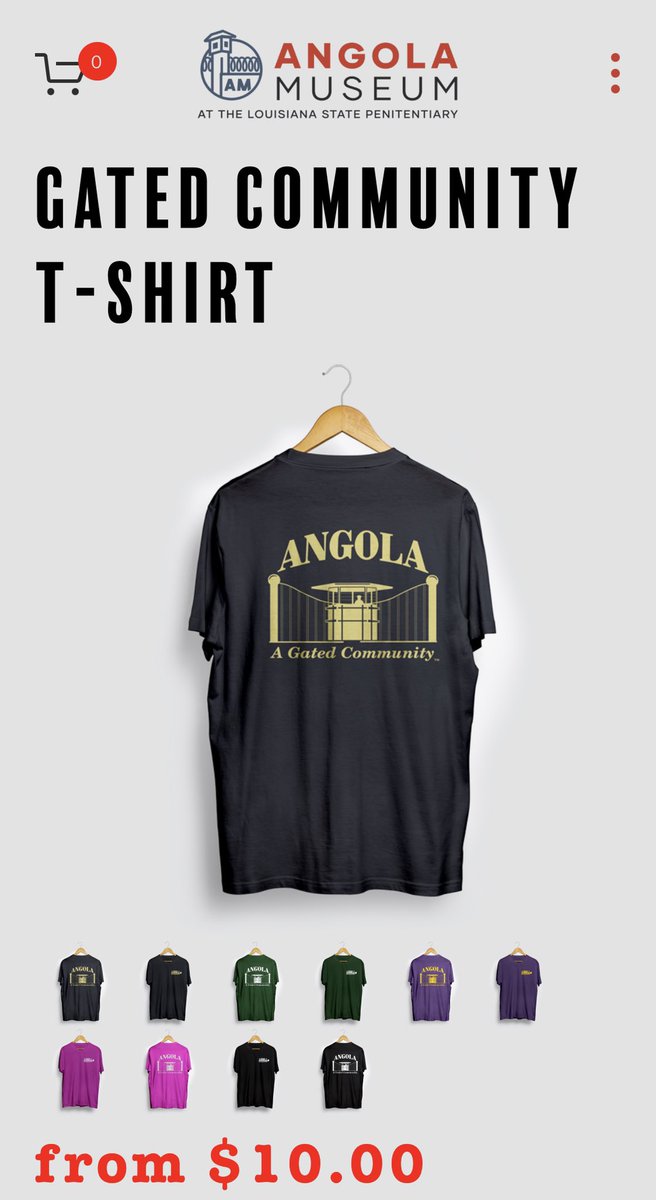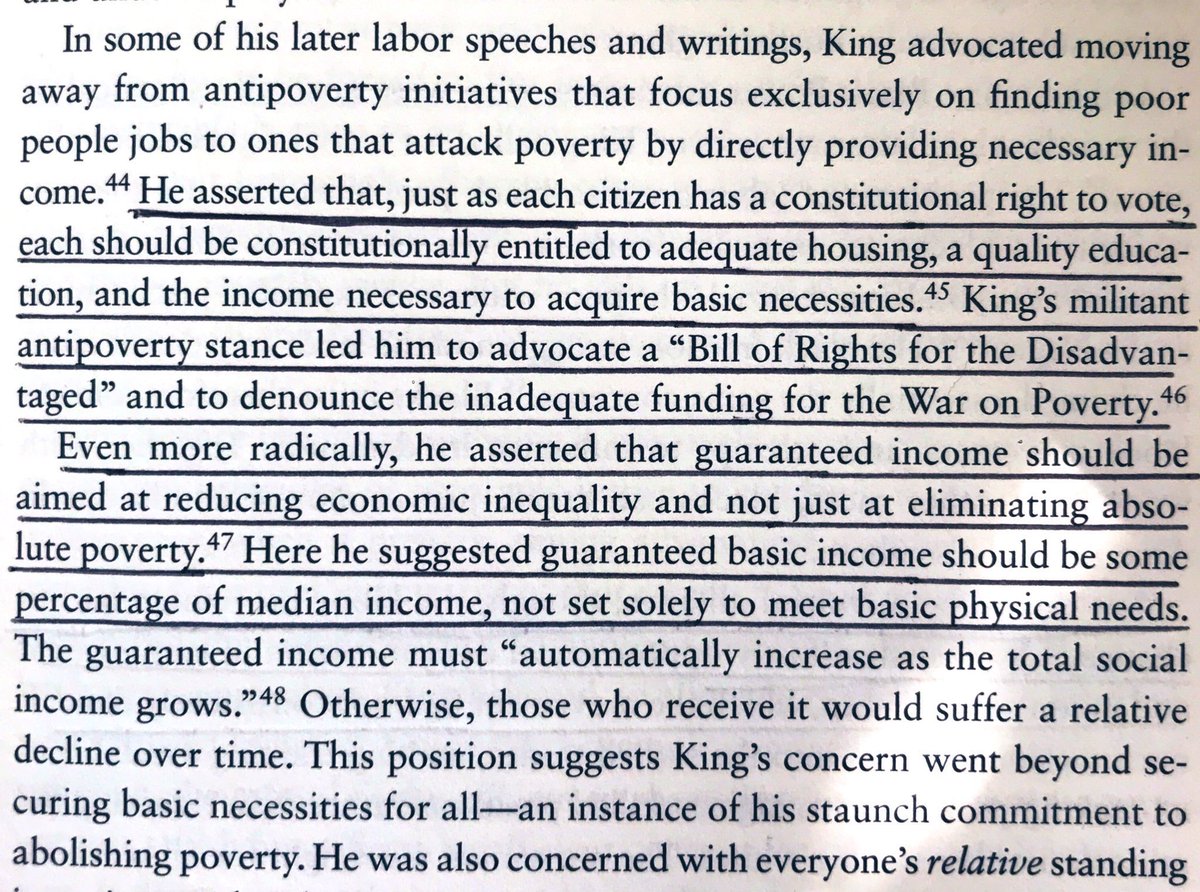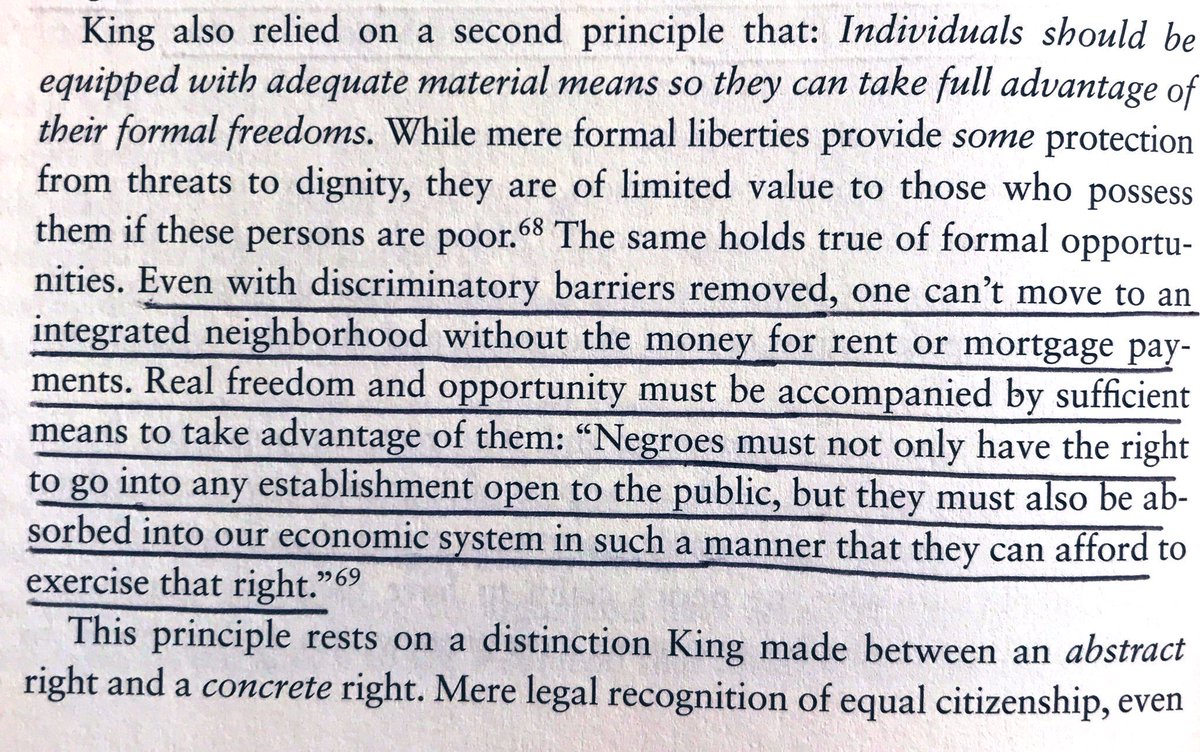
Black History Month is a time where educators should take seriously the history of violence and oppression that have been done to Black people, but also make clear that Black life is not singularly defined by that violence. The story of Black life is far more expansive than that.
Sometimes, people think of Black history only in terms of the trauma Black folks have experienced. But what it also important, I think, is telling the story of what Black folks have achieved, created, & overcome in spite of that. Both parts of this story should be told together.
It's important to directly name the history of state-sanctioned and interpersonal violence Black folks have been subjected to, because to not so do allows for a story of this country to be told that isn't true, it allows for the creation of harmful and disingenuous myth-making.
In the midst of a moment where school boards and state legislatures are attempting to prevent aspects of Black history from being taught, it is more important than ever that educators be honest about the histories of slavery and Jim Crow domestically, and of colonialism abroad.
I mean, I wrote a book about the history of slavery, so I believe as much as anyone that teaching these aspects of history is essential. Learning this history was liberating for me as a young person, because I was able to understand why our country looked the way it does today.
I can’t say enough about how important this was, to be given the language, the tools, the framework, and the history with which to make sense of this country. To understand that the landscape of inequality wasn’t something that just *happened*, but that was *created.*
I think of this from Baldwin's essay "A Talk to Teachers": "I would try to teach [Black children]...that those streets, those houses, those dangers, those agonies by which they are surrounded, are criminal."
The problem is not the child, it is the society the child is born into.
The problem is not the child, it is the society the child is born into.
But telling the story of Black life is not an *either/or* proposition, it’s a story of *both/and*. It’s essential to hold, and lean into, that complexity. Black history is full of moments of pain, trauma, and violence, but also moments of triumph, perseverance, and courage.
Black history is also not just the story of individuals who did ostensibly “exceptional” things, it is the story of ordinary, everyday people who have carved out meaning, purpose, and joy in their lives despite conditions that perpetually attempted to strip them of those things.
Black History month is not where the teaching of Black history begins and ends, rather it serves as a collective entry point for us to think more deeply about the dynamic and diverse stories of Black life in this country. Both the stories of today and the stories of the past.
Blackness is not, nor has it ever been, one thing. Rather than flattening Black life and rendering it two-dimensional--whether in the US or across the world--the heterogeneity and complexity of the Black experience is something that should be lifted up and celebrated.
If you've gotten to the end of this thread, you might be interested in our YouTube series, Crash Course Black American History. Here we do our best to try and capture the nuance, complexity, and diversity of Black life:
• • •
Missing some Tweet in this thread? You can try to
force a refresh












